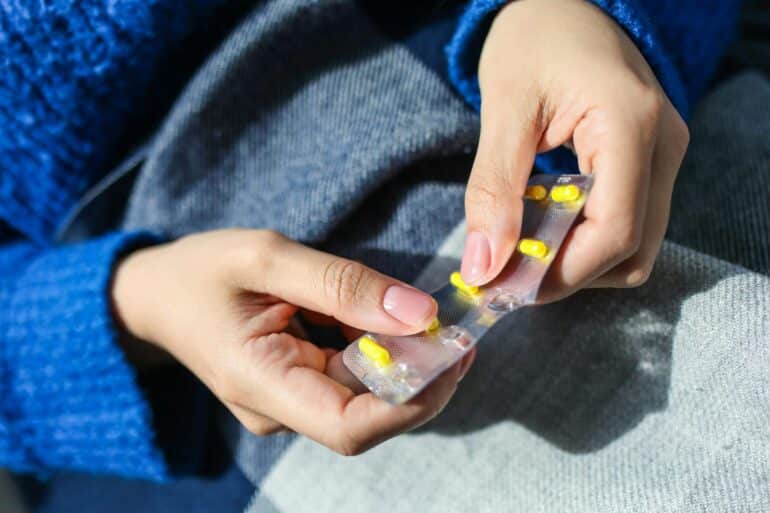As a travel enthusiast, you already know the importance of packing wisely. While you don’t want to haul around too much, essential items are a must—and medications are particularly critical on longer trips, where jet lag, body aches, or unexpected illnesses can strike.
However, carrying medications on trips across borders can be confusing. Are all medicines even allowed on planes? The last thing you want is to have a trip interrupted by an unresolved headache or illness.
Here are some essential tips to ensure your medications are travel-ready:
#1 Pack Both Prescription and OTC Medicines
When prepping for an exciting journey, it’s best to plan for potential health hiccups. Be sure to pack both prescription and over-the-counter (OTC) medications.
Common essentials include medications for upset stomach, pain relief, allergies, and motion sickness—especially if you’re going on a cruise. Also, pack a basic first-aid kit with antiseptics and bandages.
It’s tempting to assume you can pick up painkillers or similar remedies on the go, but finding a pharmacy in an unfamiliar place can be challenging. Plus, some OTC medications might be restricted or even prohibited in certain countries. For example, some decongestants are banned in Japan, and certain sleep aids require a license in Singapore.
#2 Pack Your Medications Carefully
Proper packing is key to keeping your medications safe and accessible. Use a travel-friendly pouch, keep liquids in small, leak-proof containers, and place everything in a transparent bag. Keeping medications in their original containers also helps airport security identify them if needed.
Most medications are stable at room temperature (about 59-77°F). Extreme temperatures can reduce their effectiveness, so it’s best to keep them with you in the cabin during flights or long car rides. If you need to keep something refrigerated, use a medical-grade cooler and, if possible, transfer it to a fridge upon arrival. Discard any medication that appears discolored or has an unusual odor.
#3 Consult a Pharmacist for Destination-Specific Advice
Before traveling, consult a pharmacist to ensure you have everything you need for your destination. You may need vaccines or additional medications depending on where you’re headed. For example, Japanese encephalitis is a common concern in parts of Asia and the Western Pacific.
USA Today recommends seeing a pharmacist about four to eight weeks before your trip, which allows time to adjust to any new medications without worrying about side effects.
These consultations are typically quicker than a doctor’s visit and often come with practical tips, like packing insect repellent or traveler’s diarrhea medication for high-risk areas.
#4 Carry Your Prescriptions and Health Records
While it may seem unnecessary to bring prescriptions once they’re filled, having them on hand can prevent issues at customs, particularly for medications that are restricted or banned in certain countries.
For example, suboxone, a drug to treat opioid addiction, has been long controversial. It has been linked to dental problems so severe that some patients need full-mouth work. The Suboxone lawsuit payout per person can be as high as $500,000 in abject cases. It’s best to have your prescription on you if questions get asked.
Similarly, health records can clarify any specific medical needs, especially when traveling to countries with strict medication regulations, such as Japan and Singapore.
#5 Avoid Counterfeit Drugs Abroad
Even with precautions, there’s always a chance something could go wrong—your bag could be lost, or medications could be damaged. If you need to buy medications while traveling, be cautious, as counterfeit drugs are prevalent in some areas.
According to the CDC, between 9% and 41% of medicines in low- and middle-income countries may be counterfeit. To minimize risk, visit licensed pharmacies, ask for a receipt, and avoid accepting “alternatives.” Insist on original packaging and check ingredients carefully.
Carrying Medication on Trips
Traveling takes planning, time, and investment. Along with mapping out your itinerary, make sure your health needs are covered to avoid disruptions to your adventure. Happy travels, and stay healthy on the go!
What say you?
Thoughts on Carrying Medication on Trips?
Let’s hear it!









Thanks to sharing this helpful topic, If you need Custom Packaging help in promoting the products and the brands. Moreover, these boxes enhance the market, attract customers, and increase sales.